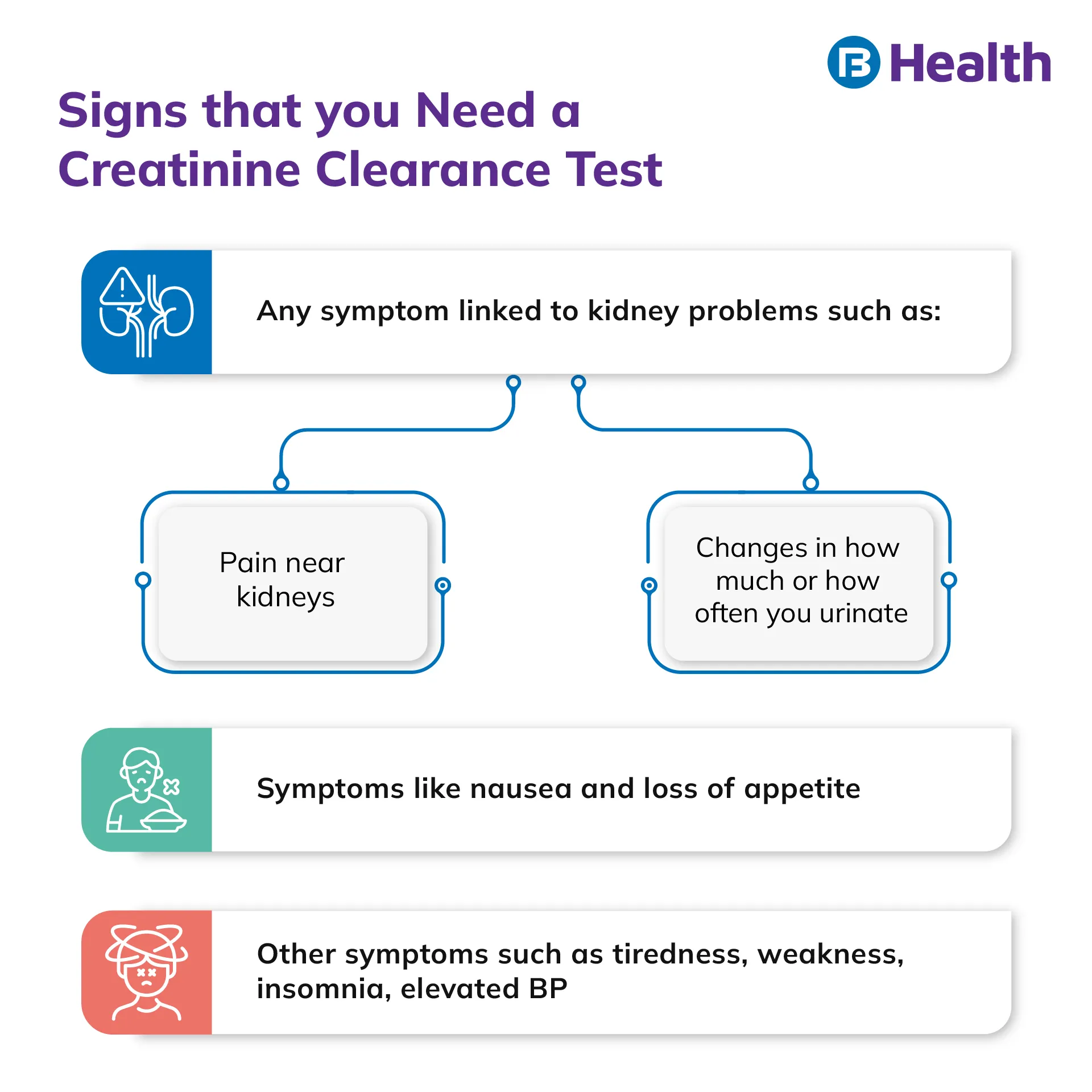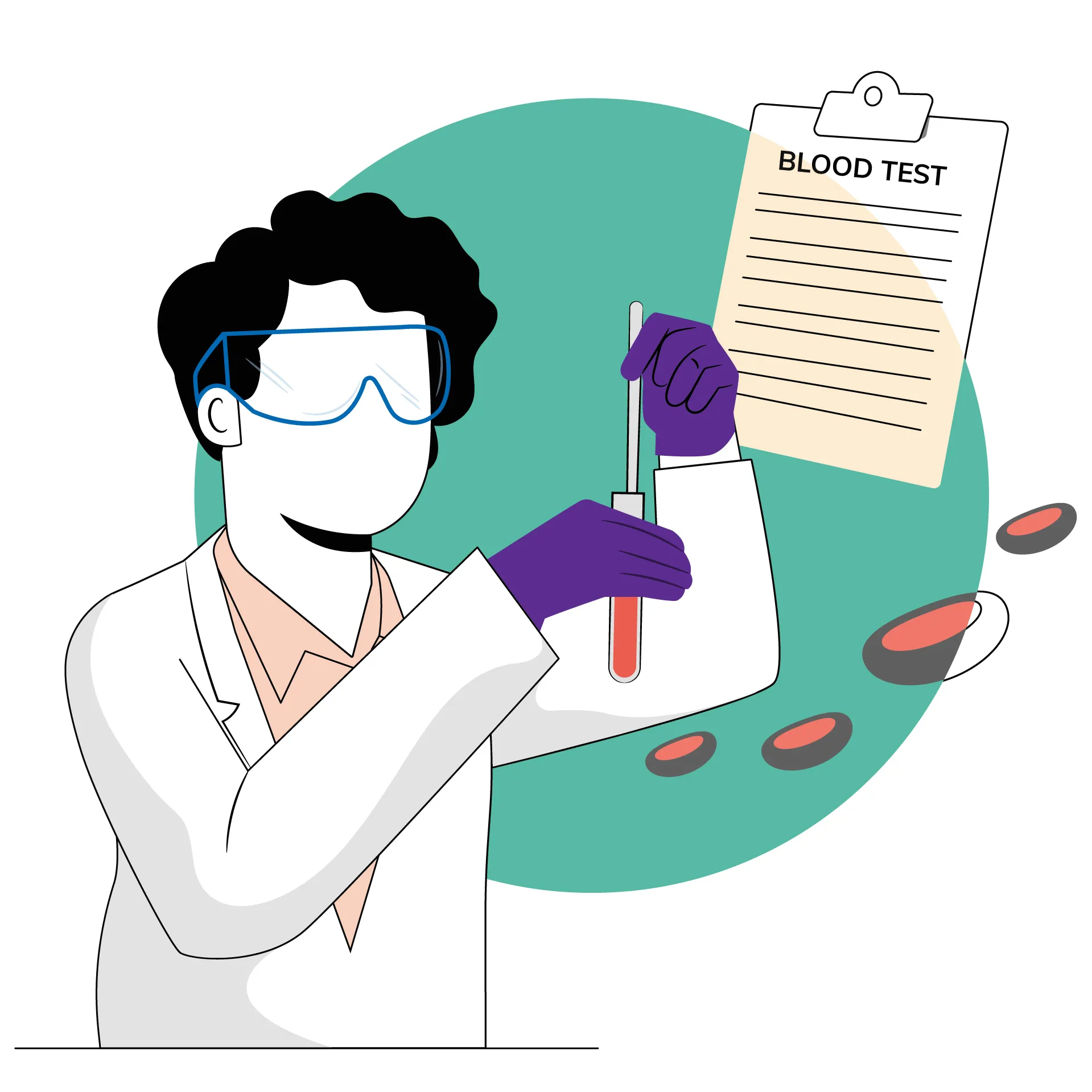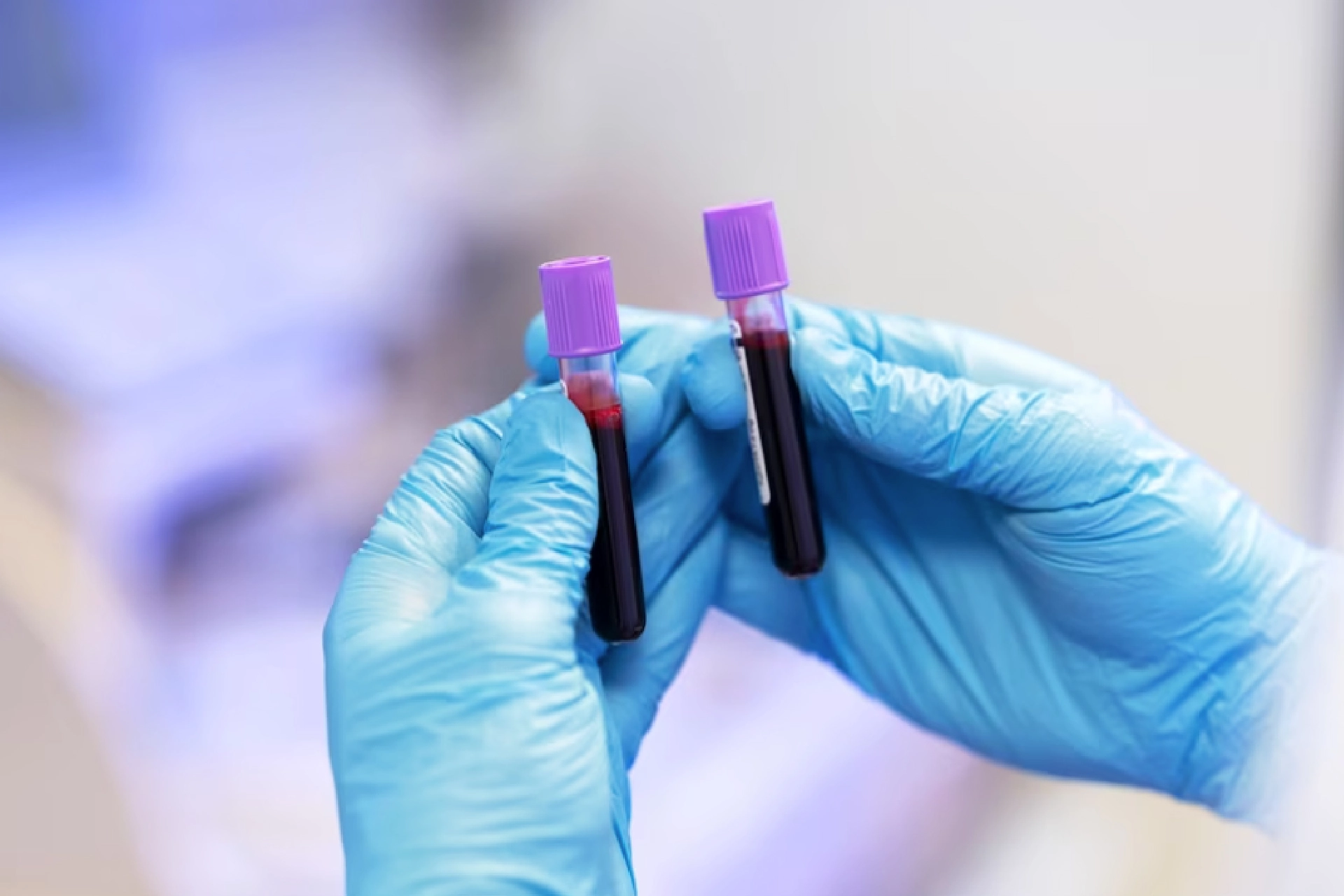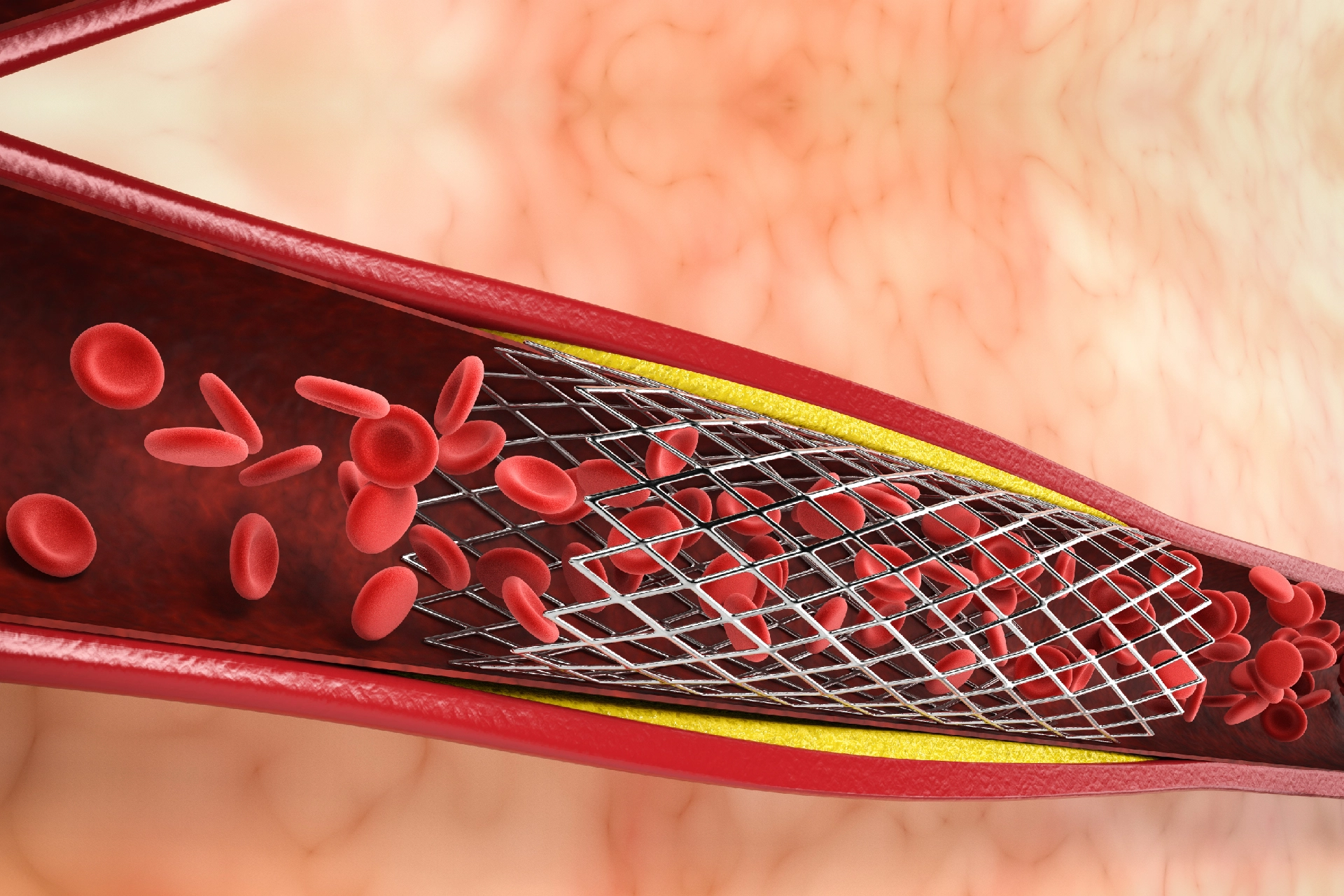Health Tests | 5 min read
Creatinine Clearance Blood Test: Normal Range, Procedure, Results
Medically reviewed by
Table of Content
Synopsis
Creatinine clearance blood test is a good way to find out the creatinine levels in your blood. A creatinine clearance test helps in decoding kidney functions and tracing anomalies on a timely basis.
Key Takeaways
- Creatinine filters the waste from your blood, keeping your kidneys active
- Creatinine Clearance Test reveals the level of creatinine in your blood
- Creatinine clearance blood test normal score should be 95 to 120 Ml per minute
Kidneys are one of the most vital organs in the human body. They regulate the waste within the body and actively flush out the same from the body on a timely basis. Kidney conditions or impairment can affect the waste movement in the human body, and chronic kidney disease (CKD) is a very common factor leading to this problem. In fact, CKD adversely affects a large population all across the world. While there may be a lot of reasons for this problem, in India, 40–60% of cases of CKD happen due to diabetes and hypertension [1]. Creatinine Clearance Test is for kidney health.
The Creatinine Clearance Test helps with the early detection of kidney disease and helps you understand if your kidney functions are impaired owing to some underlying illness or disease. India sees a rapid in kidney diseases, which have increased from .59 million in 1990 to 1.18 million in 2016 [2]. In this scenario, it is even more important to keep tabs on your kidney health. This is where the Creatinine clearance blood test comes in handy. It can help assess your kidneys’ condition in advance so that you can take the necessary steps to reverse kidney disease if needed. Read here to know why this test is so important.
Creatinine Clearance Test: What does it measure?
In simple words, creatinine is the waste material that your body regularly makes as a residue of the muscle breakdown process. This by-product is then filtered by your kidneys and flushed out from the blood into the urine, which in due course is pushed out of your body. This action of filtration happens every minute, and a creatinine clearance test measures how much blood the kidneys can filter of creatinine every minute. The creatinine clearance blood test records the creatinine reduction capacity of the human body. Thus, it is a test to measure if the kidneys are capable enough to flush out the right amount of creatinine every minute.
Additional Read: Triiodothyronine Test
What is the creatinine clearance in the normal blood test range?
According to test standards, a healthy youth should be able to flush out 95 milliliters (mL) of creatinine per minute. Keep in mind that this range differs slightly for men, and it is normal for males to clear 120 mL of creatinine per minute. This means if your kidneys are working fine, then they can clear 95 to 120 mL of blood free of creatinine every minute. However, this is the ideal range, and the same can vary across age, sex, and weight.
How is the creatinine clearance test done?
In order to record kidney functions, the creatinine clearance blood test is carried out, and this test estimates the level of creatinine in the blood. The higher the blood creatinine level, the lower will be the creatinine clearance, and it will indicate an increased risk of kidney damage. Alongside the blood test, a urine test is also conducted in many cases to indicate creatinine levels.
A urine test is also considered a valid test, which records the quantity of creatinine in your urine to see if it is low or high. Here, the urine samples are monitored for 24 hours to arrive at the results. Keep in mind that this test is not considered to be very conclusive as compared to the creatinine clearance blood test.

Why is it essential to conduct a creatinine clearance test?
Apart from knowing the efficiency of your kidney functions, there may be other reasons why a physician may ask you to take a creatinine clearance blood test. For instance, if you are detected with diabetes, high BP, and other conditions, this test can help them assess if such conditions have affected your kidneys. Alternatively, they may want to diagnose your kidney conditions owing to the side effects of medications that had been earlier prescribed or want to keep a tab on your kidney health post a transplant.
Now that you have got a thorough glimpse of the importance of the creatinine clearance test make sure to get this test done regularly. You can schedule lab tests like the creatinine clearance blood test, lipid profile test or iron profile test, and more with just a click on Bajaj Finserv Health. This platform and app connect you to dependable partner diagnostic services, help you get discounted prices, and usually offer convenient sample collection from the comfort of your home.
To make your health-related expenses even more pocket-friendly, you can sign up for health plans under Aarogya Care. Choose any of the available Complete Health Solution medical policies to enjoy benefits like a wide partner network and discounts, high coverage for all your health-related costs, free unlimited doctor consultations, reimbursements on lab tests, and more. So, from a health test to a doctor’s appointment, you can do it all on Bajaj Finserv Health! Give your health the attention it deserves, and make sure you regulate your kidney function through the test.
References
- https://www.ncbi.nlm.nih.gov/pmc/articles/PMC4446915/
- https://kidney360.asnjournals.org/content/1/10/1143#:~:text=The%20Million%20Death%20Study%20estimated,per%20million%20population%20(3).
Disclaimer
Please note that this article is solely meant for informational purposes and Bajaj Finserv Health Limited (“BFHL”) does not shoulder any responsibility of the views/advice/information expressed/given by the writer/reviewer/originator. This article should not be considered as a substitute for any medical advice, diagnosis or treatment. Always consult with your trusted physician/qualified healthcare professional to evaluate your medical condition. The above article has been reviewed by a qualified doctor and BFHL is not responsible for any damages for any information or services provided by any third party.





